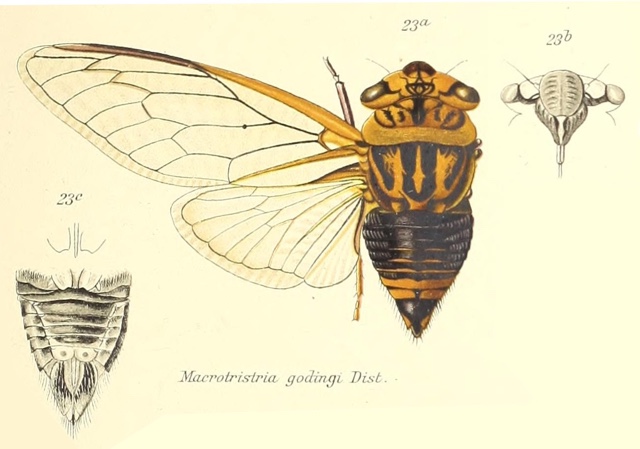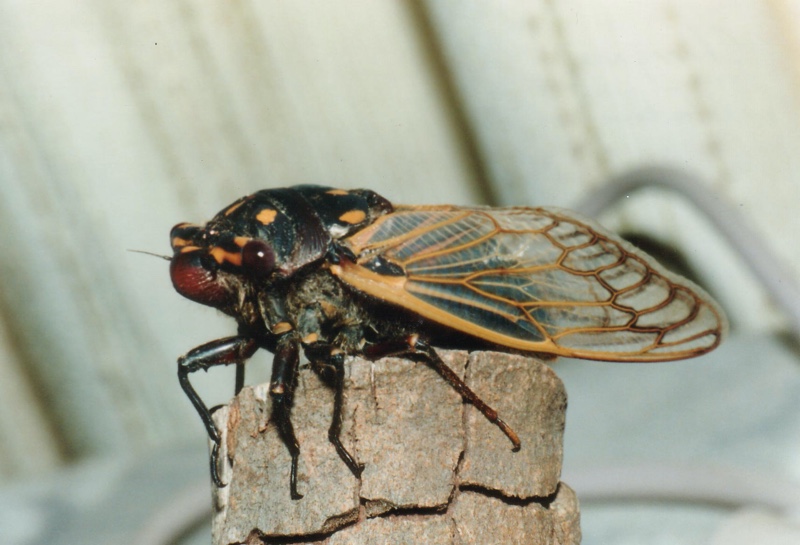Macrotristria godingi Distant, 1907, is found in Northeastern Queensland Australia and is commonly known as the Tiger Prince! It looks like a Tiger, doesn’t it?
Scientific classification:
Family: Cicadidae
Subfamily: Cicadinae
Tribe: Macrotristriini
SubTribe: ?
Genus: Macrotristria
Species: Macrotristria godingi Distant, 1907

Macrotristria genus description by W. L. Distant:
Characters. — Length of head more than half the breadth between eyes, including eyes considerably broader than base of mesonotum; ocelli much more remote from eyes than from each other; face longer than broad, large and globose; pronotum about as long as mesonotum including the cruciform elevation and longer than head, the lateral margins with a distinct anterior lobe; abdomen about as long as space between apex of head and base of cruciform elevation; tympana concealed; opercula scarcely extending beyond base of abdomen; rostrum reaching or slightly passing the posterior coxae; tegmina three times as long as broad, basal cell longer than broad, apical areas eight; wings more than half the length of tegmina, apical areas six.
References:
- Location information and common name provided by M.S. Moulds’ Australian Cicadas book. 1990. New South Wales University Press.
- The illustration and genus description comes from the journal Genera Insectorum, and a specific article from 1913 by W. L. Distant titled Homoptera. Fam. Cicadidae, Subfam, Cicadinae. Read it on the Biodiversity Heritage Library website.
- Current species name verified using Allen Sanborn’s Catalogue of the Cicadoidea (Hemiptera: Auchenorrhyncha).
- Tribe information comes from: MARSHALL, DAVID C. et al.A molecular phylogeny of the cicadas (Hemiptera: Cicadidae) with a review of tribe and subfamily classification.Zootaxa, [S.l.], v. 4424, n. 1, p. 1—64, may 2018. ISSN 1175-5334. Available at: https://www.biotaxa.org/Zootaxa/article/view/zootaxa.4424.1.1

